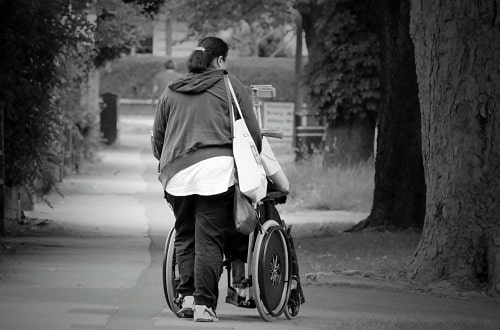It's Not You, It's Them: How The ADA Protects Employees From "Associational Discrimination"

Typically and understandably, most claims of employment discrimination under the Americans With Disabilities Act (ADA) involve termination, refusal to hire, or other adverse actions based on the employee's disability. But non-disabled American workers can also face discrimination that runs afoul of the ADA if their employer makes an employment decision based on the disability of a person with whom the employee associates.
For example, an employer may be reluctant to hire a candidate who has a sick or disabled spouse, child, or parent, because they fear that the worker may lack the needed focus for their job or miss work frequently to deal with caregiving obligations. But employment decisions based on “associational discrimination” are just as prohibited as those premised on an employee's disability and run equally afoul of the ADA.
What Is "Associational Discrimination"?
The fundamental employment discrimination directive of the ADA is that an employer cannot "discriminate against a qualified individual on the basis of disability" regarding job application procedures, hiring, advancement, discharge, compensation, job training, and other terms, conditions, and privileges of employment. (42 USC § 12112).
Included in the ADA's definition of the term "discriminate against a qualified individual on the basis of disability" is:
"excluding or otherwise denying equal jobs or benefits to a qualified individual because of the known disability of an individual with whom the qualified individual is known to have a relationship or association." (42 U.S.C § 12112(b)(4)).
According to the Equal Employment Opportunity Commission (EEOC), the purpose of this "associational discrimination" provision is "to prevent employers from taking adverse actions based on unfounded stereotypes and assumptions about individuals who associate with people who have disabilities."
7th Circuit Outlines Three Forms Of Associational Discrimination
In its August 2020 decision in Pierri v. Medline Industries, Inc., the U.S. Court of Appeals for the Seventh Circuit recognized three situations that could form the basis of an associational discrimination claim under the ADA:
- The “expense” situation. This arises when an employee’s “[relative] has a disability that is costly to the employer because the [relative] is covered by the company’s health plan.”
- The “disability by association” situation. This form of discrimination occurs “when an employer fears that the employee may have become infected with a disease because of the known disease of an associate of the employee.”
- The “distraction” situation. This occurs when “the employee is somewhat inattentive at work because his spouse or child has a disability that requires his attention, yet not so inattentive that to perform to his employer’s satisfaction he would need an accommodation.”
The "Association" Can Be With Anyone, not Just Family Members
Notably, the association need not be with a family member to be protected under the ADA. The disabled person could be a roommate, friend, or neighbor. The key, according to the EEOC, is "whether the employer is motivated by the individual's relationship or association with a person who has a disability."
"Reasonable Accommodations" for the Disability of an Employee's Associate
The ADA's "reasonable accommodation" requirement does not apply when the disabled person is someone other than the employee. Only qualified candidates and employees with disabilities are entitled to reasonable accommodation. This means that the ADA does not require an employer to modify its leave policy for an employee who needs to take additional time off to care for a child with a disability, for example.
What About COVID?
The “disability by association” situation outlined by the Seventh Circuit would prohibit discrimination based on unfounded concerns about an employee who associates with someone with an illness that presents no actual risk of transmission by the employee, such as HIV/AIDS.
COVID-19, obviously, does involve a significant risk of transmission. The EEOC has made it clear that while the requirements of the ADA still apply, the ADA does not interfere with employers following recommendations by the CDC or other public health authorities regarding whether, when, and for whom testing or other screening is appropriate.
In practice, this means that an employee who has been in close contact with someone who is sick with COVID can be kept out of the workplace for such time as provided by CDC guidelines. And while an employer can ask an employee whether they have been in close contact with an infected individual, the employer cannot only ask about family members.
According to the EEOC, “The Genetic Information Nondiscrimination Act (GINA) prohibits employers from asking employees medical questions about family members. GINA, however, does not prohibit an employer from asking employees whether they have had contact with anyone diagnosed with COVID-19 or who may have symptoms associated with the disease.”
If You Have Questions Regarding Your Company’s Associational Discrimination Obligations Under the ADA, Speak With an Employment Lawyer Today
The ADA provides robust protections for individuals who suffer employment discrimination because of a disability, including discrimination based on a friend or loved one's disability. Your business should be prepared to handle those issues if and when they arise. If you have questions regarding your ADA obligations or have any other employment-related concerns, please contact your attorney at Latimer LeVay Fyock or one of the attorneys in the firm’s Labor and Employment Practice Group.


